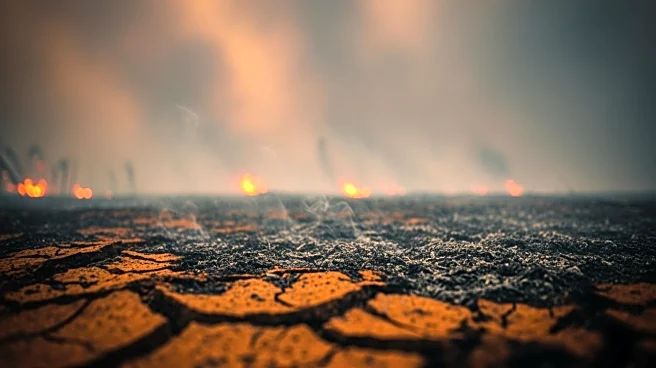What's Happening?
A fire has disrupted the COP30 climate summit in Belem, Brazil, where nearly 200 countries are gathered to discuss critical climate issues. The summit, which was scheduled to conclude on Friday, has been
delayed due to the incident, with 13 individuals treated for smoke inhalation. The negotiations aim to secure agreements on phasing out oil, gas, and coal, and increasing climate adaptation finance for developing countries. These nations are advocating for more substantial support from industrialized countries to combat worsening environmental challenges such as storms, droughts, wildfires, and floods.
Why It's Important?
The disruption at COP30 highlights the urgency and complexity of international climate negotiations. The summit is crucial for advancing global climate action and transforming pledges into tangible measures. Developing countries, facing severe climate impacts, are pushing for increased financial support, which could lead to significant shifts in international climate policy. The outcome of these negotiations could influence global efforts to mitigate climate change and support vulnerable regions, impacting environmental policies and economic strategies worldwide.
What's Next?
With less than 48 hours remaining, the summit faces pressure to reach a consensus on key issues. The host nation, Brazil, emphasizes the importance of demonstrating broad support for accelerated climate action. Stakeholders are expected to intensify discussions to overcome the disruption and finalize agreements. The outcome will likely affect future climate policies and international cooperation, with potential implications for global environmental and economic strategies.









